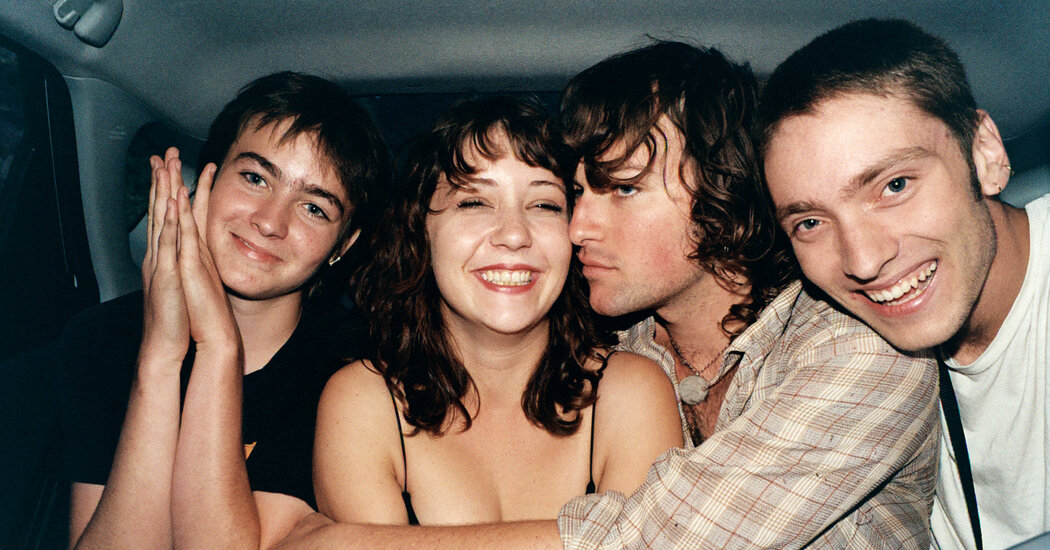
Times Insider explains who we are and what we do and delivers behind-the-scenes insights into how our journalism comes together.
In 2004, as a high school student in Rochester, N.Y., Eve Lyons found freedom listening to Radiohead in the car with her friends.
There are certain rites of passage that accompany the precious and formative time between childhood and adulthood: Getting your driver’s license, sneaking out with friends, going on a first date, landing your first job. Or, like Ms. Lyons, now a photo editor on the Special Projects team at The New York Times, driving with nowhere to go, enjoying a favorite band with classmates. Though the settings where we come of age may vary, the camaraderie we build with our peers during that time is universal.
But the Covid-19 pandemic closed schools and canceled dances. Isolated at home, teenagers were inundated with even more technology than they were already using. The pandemic made Ms. Lyons wonder if teenage rites of passage had changed — and if so, how.
“That in-between age is already an uncomfortable time,” Ms. Lyons said. Last summer, she sorted through what she called her “mental Rolodex” of the photographers she had met or worked with in her nine years as a photo editor, and sent out a call for pitches: What does coming-of-age look like today?
Photographers responded. Young people, many of them wrote, were creating their own spaces where community could flourish. More than a dozen of those communities are spotlighted in Where We Are, a new series produced by Ms. Lyons and her Special Projects colleagues Jennifer Harlan and Alice Fang. The project, which is being published online and in the Arts & Leisure section in print, features different places around the world where young people gather.
More on India
In the series, photographers take readers to scenes where friends bond and teenagers learn who they are, like a market in Lagos, Nigeria, where skateboarders dig for fashion, and a Korean American youth camp in New York State.
Adrian Martinez Chavez is a photographer based in Connecticut whose work explores Mexican American identity. For Where We Are, he spent several months last summer and fall photographing the diverse 20-something regulars at his family’s Mexican restaurant in a sleepy suburb north of Hartford.
For another article in the series, Adali Schell, a B.F.A. candidate at the University of California, Los Angeles, spent the summer taking photos of his friends in Los Angeles. The group of students and artists finds safety and freedom driving to the far reaches of their city.
Each Where We Are article includes dozens of photos stitched and layered together. Online, as readers scroll, pictures drag text up the screen with them. The essays that accompany the photography were written by reporters who interviewed the subjects in the fall, after the pictures were submitted to Special Projects.
Ms. Fang, the lead news designer on the project, said the team wanted the series to appear visually cohesive and for the articles to look related.
“I wanted it to have this sense of going through a scrapbook,” Ms. Fang said.
She said the placement of the photographers’ names as bylines should tell the reader that the photographs are just as essential as the text. The photo byline is also meant to convey that an article is “how that photographer sees the world,” she said.
Ms. Lyons and Ms. Harlan mentioned an article about girls in India who train in mud wrestling to grow strong against a patriarchal society.
“That one in particular was a place and a community and a story that I had never seen or heard before,” Ms. Harlan said. She called it “a world far removed from my own,” and still, one with descriptions of friendship that Ms. Harlan recognized.
“There are parts of it that feel very familiar.”






